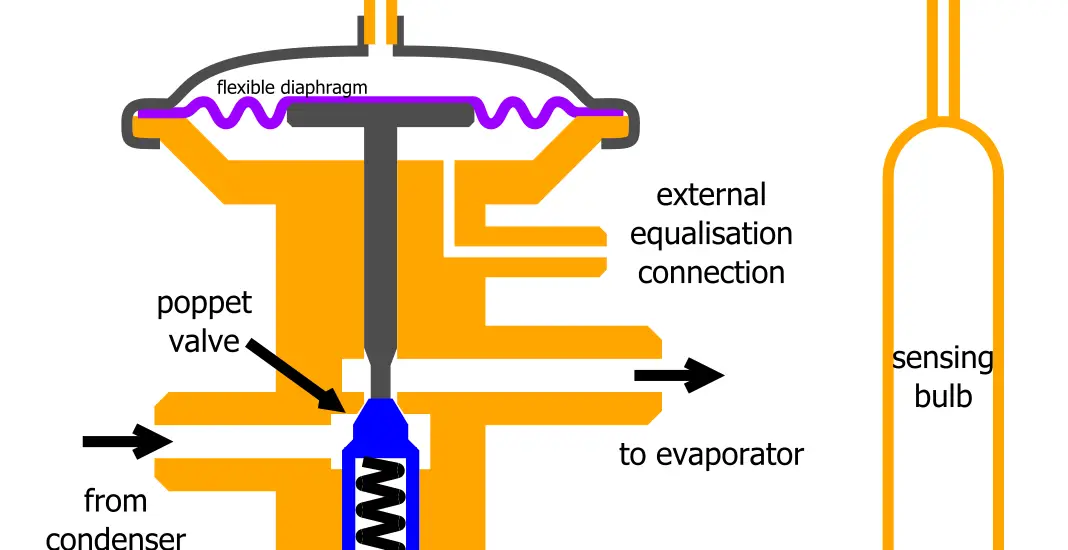If you have recently noticed an expansion valve hissing noise, it may leave you concerned and unsure of the next steps. In this comprehensive guide, we’ll explore what the expansion valve hissing noise means, why it occurs, and how you can diagnose and resolve it effectively.

Table of Contents
What is an Expansion Valve and Why Does It Hiss?
An expansion valve is a crucial component in your HVAC system that controls the amount of refrigerant flowing into the evaporator. The hissing noise is often due to a change in pressure or flow. It can indicate problems such as leakage or blockage.
Understanding the root cause will help you address the issue effectively. The hissing is usually a high-pitched noise, resembling air or gas escaping, and may occur in various parts of the valve.
Steps to Diagnose and Fix Expansion Valve Hissing Noise
Identifying and rectifying the cause of the expansion valve hissing noise is essential to maintain the efficiency of your system. Here is a detailed guide:
Identify the Exact Source of the Noise: Using a stethoscope or careful listening, pinpoint the location of the hissing sound. This will help you focus on the exact part of the valve that may be problematic. Safety first – ensure the system is powered off and cooled down before attempting to touch or examine it.
Inspect the Valve for Visible Damages: Look for cracks, leaks, or other signs of wear that might cause the hissing. Check the connections, seals, and overall appearance of the valve to see if there’s anything out of place or abnormal.
Check for Refrigerant Leakage: Using a refrigerant leak detector or soapy water, check for escaping gas from the valve. A leak detector will beep or flash when it detects refrigerant, while bubbles will form in soapy water where gas is escaping.
You can use this Elitech HVAC Refrigerant Leak Detector from Amazon to check for refrigerant leakage.
Replace or Repair the Valve: Depending on the exact issue, you may need to repair or replace the valve. Sealing a leak may be a temporary solution while replacing a corroded or incorrectly sized valve might be the only long-term solution. Always follow the manufacturer’s instructions or consult a professional if unsure.
Final Note: Always remember to follow safety guidelines when working with HVAC systems. Turn off the power, use appropriate tools, and wear protective gear. If you’re unsure at any step, don’t hesitate to call a professional. Your safety and the integrity of your system are paramount.
Professional Help for Expansion Valve Noise
If the hissing noise continues after following these steps, seeking professional help might be the safest and most efficient option. Experts in the field will have the necessary tools and knowledge to identify and fix the issue. Don’t hesitate to contact a certified HVAC technician, as an unresolved issue could lead to more significant damage or inefficiency in the system.
Check out these other related articles…
Expansion Valve vs Capillary Tube: A Detailed Comparison
Expansion Valve Thermodynamics: A Comprehensive 411 Guide
Expansion Valve Working Principle: A Comprehensive Guide
Types of Expansion Valve in Refrigeration System: Easy Guide
Thermostatic Expansion Valve in a Refrigeration System: Easy 411 Guide
Common Causes of Expansion Valve Hissing Noise
The hissing noise from an expansion valve can be alarming, and it is typically an indication of underlying issues. Here are the common causes explained in depth:
Refrigerant Leakage: Refrigerants are essential for cooling, and they must flow through the valve unimpeded. A leak may result in a hissing noise, similar to air escaping from a tire. This leak not only causes noise but can lead to inefficiency in the cooling system and potential environmental damage.
Wear and Tear: Like all mechanical components, expansion valves are subject to wear and tear. Corrosion, erosion, or general aging may cause gaps and weaknesses in the valve’s structure, leading to a hissing noise as the pressure within the valve escapes through these weak points.
Incorrect Valve Size: If the valve is not the right size for the system, it may lead to improper flow rates and pressure levels. An oversized valve may cause excessive flow, and an undersized valve might restrict the flow. Both situations can result in a distinct hissing noise as the refrigerant struggles to pass through the valve.
Obstructions in the Valve: Dirt, debris, or manufacturing defects could obstruct the refrigerant’s flow inside the valve. These obstructions might cause turbulent flow, which creates a hissing sound. Regular cleaning and maintenance can prevent these obstructions.
